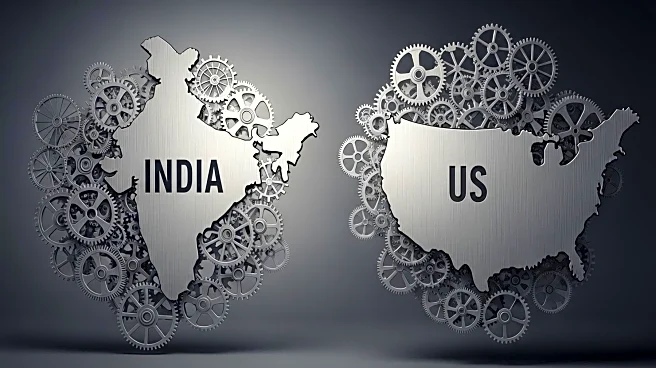What's Happening?
The United States has announced a significant increase in H-1B visa fees, raising the annual cost to $100,000. This decision is expected to have substantial effects on Indian industries that heavily rely on this visa program. Ajay Bagga, a banking and market expert, suggests that the fee hike could potentially reduce the brain drain from India by encouraging the country to better utilize its skilled workforce domestically. The H-1B visa program is crucial for various sectors in the U.S., including healthcare and information technology, with approximately 16,000 Indian-origin doctors working in rural areas and major IT firms employing thousands of Indian professionals under this visa category.
Why It's Important?
The increase in H-1B visa fees is poised to impact multiple sectors in the U.S. that depend on foreign expertise, particularly from India. The healthcare and IT industries, which rely heavily on skilled workers from abroad, may face challenges in maintaining their workforce. This policy, announced by President Trump, aims to address concerns about the overutilization of the visa program and to protect American jobs. However, it may also lead to a shift in business strategies, with companies potentially outsourcing operations to more cost-effective locations like Vancouver. This could alter the landscape of international employment and affect the U.S. economy's reliance on foreign talent.
What's Next?
As companies adjust to the increased costs associated with the H-1B visa program, there may be a rise in outsourcing to countries with more favorable economic conditions. This could lead to a reevaluation of business models and employment strategies within the U.S. industries most affected by the fee hike. Additionally, the policy may prompt discussions on immigration reform and the balance between protecting domestic jobs and maintaining access to global talent.









